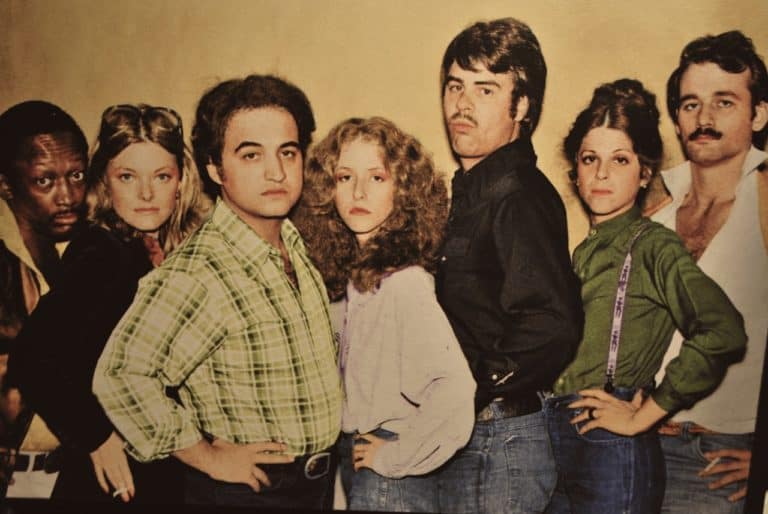If you look at it objectively, it’s a miracle that Saturday Night Live even produced its first episode, let alone its first season. Instead, it became one of the longest running and most successful TV shows in history.
The original cast and writers were a collection of egotistic, competitive, drug-abusing, promiscuous young adults who all had tremendous talent. Writers and actors had to pitch their sketches. If a sketch was chosen for the show it meant someone else’s sketch wouldn’t make it.
So how did they do it?
Credit the leadership of the show’s creator and producer, Lorne Michaels.
If you follow this blog, you will see a lot about leadership through self-differentiation. This is a family systems concept from Edwin Friedman’s book, Generation to Generation: Family Process in Church and Synagogue. Friedman’s definition is:
“The basic concept of leadership through self-differentiation is this. If a leader will take primary responsibility for his or her own goals and self, while staying in touch with the rest of the organism, there is more than a reasonable chance that the body will follow. There may be initial resistance but, if the leader can stay in touch with the resisters, the body will usually go along.
The emphasis on a leader’s self-differentiation is not to be confused with “independence” or selfish individuality. On the contrary, we are talking about the ability of a leader to be a self while still remaining a part of the system. It is the most difficult thing to do in any family. (p. 229)”
In practice, leadership through self-differentiation comes down to being a non-anxious presence. You do this by not letting your own anxiety spew forth into the interaction, while staying connected emotionally. There is a tension created when you try to be non-anxious and emotionally present.
It’s easy to be non-anxious and not emotionally present. This is detachment.
It’s also easy to be present and not control your anxiety. This often manifests itself as overfunctioning.
Leadership through self-differentiation is the ability to say “I believe” when everyone around is saying “you” or “we,” what Friedman calls surrounding togetherness pressures. Some examples:
- You should or we should…telling you what to do directly or indirectly using group pressure.
- You always or you never…whatever follows is typically blaming you for their own condition.
Anytime someone is not taking responsibility for their own goals, values or feelings, it makes it harder for you to do likewise. Yet, that is when it’s most important.
You know you are leading through self-differentiation, whether in your family, church or business, when you say “I believe” or “I feel” in a non-anxious way. It doesn’t mean you don’t feel anxious. You’re just able to control it in a way that prevents it from poisoning your interactions.
What goes unsaid here is that you are giving others the freedom to say “I,” as well.
Why does this matter?
Charles Duhigg, in his book, Smarter Faster Better: The Secrets of Being Productive in Life and Business, cites a large Google research project, code-named Project Aristotle, that sought to determine what social norms characterized the most effective teams. Duhigg summarized the results as coming down to two things: psychological safety and social sensitivity.
Psychological Safety is the sense that you can be honest and vulnerable without being embarrassed or punished by the group.
Social sensitivity is the ability to read non-verbal cues to gauge how others are feeling.
When these two norms are present, people feel free to speak their mind. They don’t have to get their own way, but if they have an opportunity to give their input, they are more likely to support the final decision, whether it is consistent with their opinion or not.
Furthermore, team members are more willing to take appropriate risks. Innovation and adaptation become possible because people are willing to risk failure.
Back to Lorne Michaels.
From Duhigg’s perspective, Michaels was able to create an environment where everyone felt heard, had a chance to give input and were aware of the feelings of others.
From a family systems perspective, I believe Michaels was a self-differentiated leader. He believed he knew what would make a great show. He was willing to express that in a way that created vision and direction. At the same time, by being a non-anxious presence, he encouraged others to express their own opinions passionately. By staying connected emotionally, his team knew that he valued their self-expression, even if their sketch didn’t make the show.
By leading through self-differentiation, Lorne Michaels led a group of gifted people with strong personalities to do their very best work for the sake of the show’s greater good.
In the church, there are many gifted people with strong personalities. When a leader is not self-defined, anxiety and chaos result. On the other hand, a self-defined leader creates the emotional space that enables God’s spirit to work…to do great things through gifted people.
Questions for Reflection:
As a leader, how able are you to state “I believe” or “I feel” in a non-anxious way?
In what leadership situations do you feel anxious? How do you manage it?
In what situations are you playing peacemaker when you should be leading through self-differentiation?


